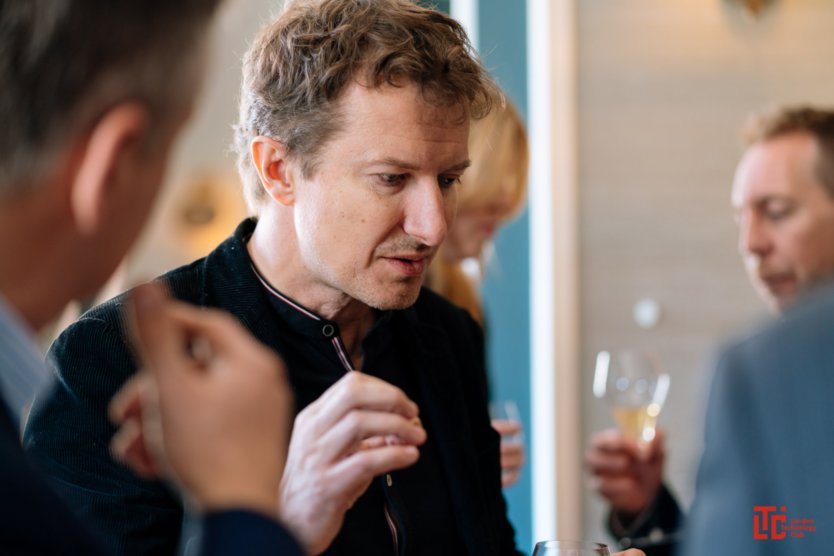WINGMAN: THE LONG TERM VIEW WITH LUKE NOSEK
10 THINGS WE LEARNED AT LUNCH WITH INVESTOR LUKE NOSEK
As the COO of the London Technology Club, I was lucky enough to host Luke Nosek in London for a special lunch with our club members. Here are learnings from some amazing conversation. Luke is nothing short of remarkable.
Simon Pavitt
1) Luke is a practitioner in first principles thinking: The act of boiling a process down to the fundamental parts that you know are true and building up from there. It’s the fundamental thinking behind his new venture fund: Gigafund. They ask themselves when investing: Do we expect this company to be one of the world's most significant and transformative businesses 20 years from today? Will this founder stick with their company for that period of time and ensure it achieves its full potential? Its long-term thinking mixed with stoicism/ resilience...
2) A first principle is a basic assumption that cannot be deduced any further. The first basis from which a thing is known. Its breaking things down until you are left with 'purely impossible to doubt truths'. First in the thinking is to deconstruct, then from that, reconstruct.
3) It can be an advantage to sometimes come into a new industry as it allows you to see things more clearly. You might question something that someone that has worked in it for a long time will have glossed over or just done it 'as that's how it’s always been done’. Often the companies are started by founders that haven’t worked in that sector before.
4) He co-founded PayPal with Peter Thiel, Elon Musk, Ken Howery and Max Levchin in 1998. In 2005 with Thiel and Howery he started Founders Fund. They are all known affectionately as the PayPal Mafia, all have gone on to new heights elsewhere. It took four years from start to exit of PayPal. Watch this space for a good book coming out about it.
“The guy I hired to build my website went on to be a company founder too… It was Chad Hurley, founder of YouTube….”
5) Founders Fund track record in investments is unrivalled: Airbnb, Lyft, Spotify, Stripe, Quantcast, Oscar Health, Palantir, SpaceX, Yammer, Zocdoc and... Facebook...
6) The formula seems to be simple: Founder, mission, technology, stamina. Luke's investment strategy just takes this to more extremes, longer-term thinking. They have never fired a CEO in any of their venture investments. They decide on the person and stick with them
“I can’t make up my mind on a company until I have met the founder”
7) Luke is looking for certain characteristics in founders: global ambitions, a purpose beyond making money, driven by something inside that believes only they can do it, independent thinkers that don’t care what others think. They are doing it their way. Motivated to reshape an industry, an unstoppable drive that is outside of themselves. Often strange. They don’t want to fit in, Mark Zuckerberg was introverted and super focused.
“You are getting married to these founders. It’s important to spend the time getting to know them and then truly committing long term”
8) DeepMind - Luke was a board director at DeepMind prior to the company's acquisition by Google (for a reported $500m+). It is one of the UKs' most successful startups in recent years - with a number of AI breakthroughs. DeepMind develops neuroscience-inspired general-purpose learning algorithms. One of the original Founders, Demis Hassabis still remains as CEO.
“DeepMind’s mission was to solve intelligence and use that to solve everything else”
9) Silicon Valley is becoming too expensive for startups and increasingly showing institutionalised thinking. People are going there thinking what can I do that will get funded not what can I start. Gigafund’s HQ is in Austin (see Wingman Thinks article about why Austin Rocks).
10) Luke acknowledged Gigafund is sector agnostic – it returns to the principle of backing the Founder on a mission…



